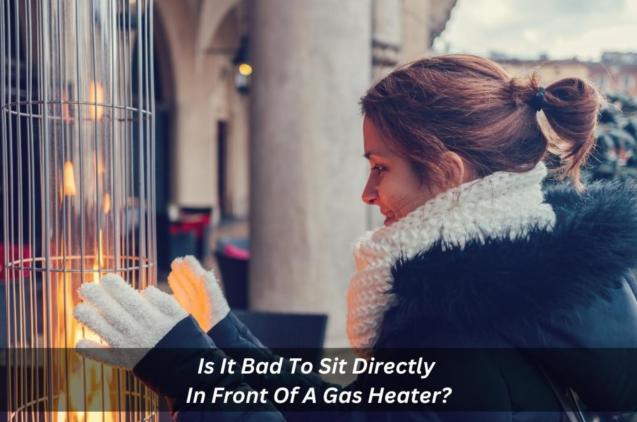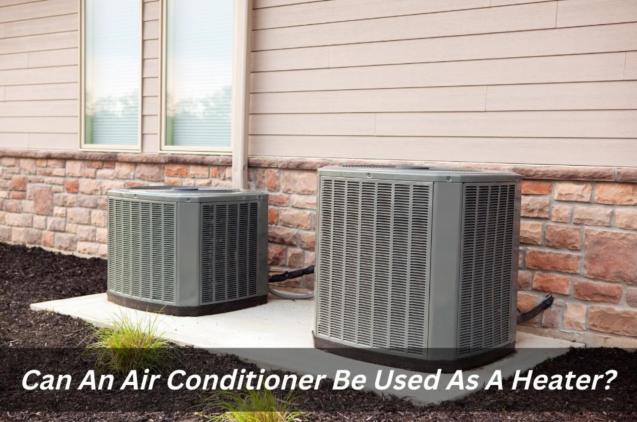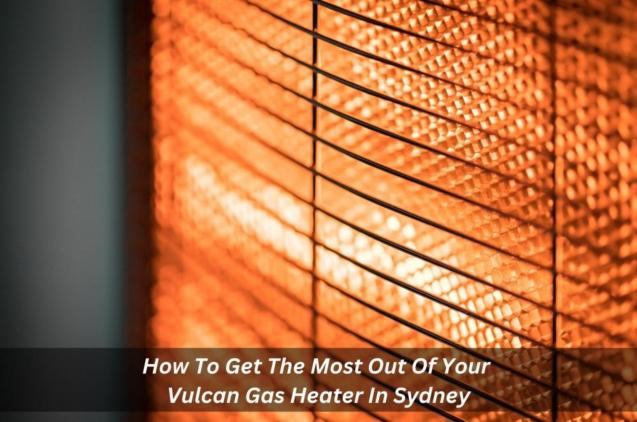
Gas Heating Safety Tips for Sydney Residents
By Apex Gas Heater Services|October 31, 2023
As the crisp embrace of Sydney's winter settles in, there's truly nothing like the comforting warmth of a gas heating system to keep you snug. Gas heating stands as a reliable and efficient ally against the season's cold grip. Yet, it's imperative to grasp the significance of safety when it comes to this cozy companion. Gas heating safety is a matter of utmost importance, and in this article, we're here to provide you with valuable insights and guidance to ensure the safety of both you and your loved ones.
From the prevention of gas leaks to safeguarding against the looming risk of carbon monoxide poisoning and potential fires and explosions, we've got you covered. Furthermore, in the unfortunate event that you encounter any issues with your gas heating system, fret not, for we'll also delve into the natural and effective ways to address them through proper gas heating repair. Your safety and warmth are our top priorities.
What are the common risks associated with gas heating?
Before we dive into safety tips, let's understand the potential risks of using gas heating in your Sydney home. These include:
Now, let's look at how you can prevent these risks and ensure your gas heating system operates safely.
How to prevent Gas Leaks
1. Have your gas heater serviced regularly by a qualified technician
Regular maintenance is crucial for the safe operation of your gas heater. A certified technician can identify and fix potential issues before they become serious problems. Remember, prevention is always better than cure.
2. Check for gas leaks regularly using a gas leak detector
Invest in a gas leak detector, a handy device that can quickly identify any gas leaks. Make it a part of your routine to check for leaks, and never underestimate the power of your nose – if you catch a whiff of a rotten egg smell or hear a hissing sound, take immediate action.
How to prevent Carbon Monoxide poisoning
1. Ensure your gas heater is properly ventilated
Proper ventilation is essential to allow the harmful carbon monoxide to dissipate safely. Make sure your gas heater has adequate airflow and is not obstructed by furniture or curtains.
2. Install a carbon monoxide detector in your home
A carbon monoxide detector is your second line of defence against this silent killer. It can alert you if dangerous levels of carbon monoxide are present in your home. Install one near your gas heater and on every level of your house.
3. Be aware of the symptoms of carbon monoxide poisoning
Know the signs of carbon monoxide poisoning, which can include headaches, dizziness, nausea, and confusion. If you or your family members experience any of these symptoms, immediately evacuate your home and seek medical attention.
How to prevent Fires and Explosions
1. Keep flammable objects away from your gas heater
Common sense plays a big role here. Avoid placing flammable items like curtains, paper, or clothing near your gas heater. Keep a safe distance to reduce the risk of accidental fires.
2. Do not use your gas heater if it is damaged or not working properly
If your gas heater is showing signs of wear and tear, or if it's not functioning correctly, it's crucial to stop using it immediately. Contact a professional for gas heating repair before resuming use.
3. Have your gas heater inspected and cleaned regularly by a qualified technician
Just like with preventing gas leaks, regular servicing is key to avoiding fires and explosions. An expert technician can detect and rectify any issues, ensuring your system is in top condition.
Additional Safety Tips
As we wrap up, here are a few extra tips to keep you and your family safe:
1. Never leave your gas heater unattended while it is in use
It's easy to become complacent, but always remember to switch off your gas heater when you leave the room or head to bed.
2. Supervise children and pets around gas heaters
Children and pets are naturally curious. Keep a close eye on them when your gas heater is running to prevent accidents.
3. Turn off your gas heater when you leave your home for an extended period of time
If you're planning to be away from home for an extended period, make sure to turn off your gas heater. It's a simple step that can save energy and reduce the risk of accidents.
Conclusion
In summary, gas heating undeniably offers a wonderful means to stay comfortably warm during the often chilly winters that embrace Sydney. However, it's vital to acknowledge that it's not without its fair share of potential risks. By diligently adhering to the safety tips provided, you can relish the coziness of a toasty home without exposing your loved ones or property to any danger.
Don't forget the importance of scheduling regular gas heating service to keep your system in optimal condition, and remain proactive in promptly detecting and addressing any issues that may arise. With these precautions, you can confidently stay safe, keep warm, and fully savour the charms of an Australian winter without a shadow of concern.
From the prevention of gas leaks to safeguarding against the looming risk of carbon monoxide poisoning and potential fires and explosions, we've got you covered. Furthermore, in the unfortunate event that you encounter any issues with your gas heating system, fret not, for we'll also delve into the natural and effective ways to address them through proper gas heating repair. Your safety and warmth are our top priorities.
What are the common risks associated with gas heating?
Before we dive into safety tips, let's understand the potential risks of using gas heating in your Sydney home. These include:
- Gas Leaks
- Carbon Monoxide Poisoning
- Fires and Explosions
Now, let's look at how you can prevent these risks and ensure your gas heating system operates safely.
How to prevent Gas Leaks
1. Have your gas heater serviced regularly by a qualified technician
Regular maintenance is crucial for the safe operation of your gas heater. A certified technician can identify and fix potential issues before they become serious problems. Remember, prevention is always better than cure.
2. Check for gas leaks regularly using a gas leak detector
Invest in a gas leak detector, a handy device that can quickly identify any gas leaks. Make it a part of your routine to check for leaks, and never underestimate the power of your nose – if you catch a whiff of a rotten egg smell or hear a hissing sound, take immediate action.
How to prevent Carbon Monoxide poisoning
1. Ensure your gas heater is properly ventilated
Proper ventilation is essential to allow the harmful carbon monoxide to dissipate safely. Make sure your gas heater has adequate airflow and is not obstructed by furniture or curtains.
2. Install a carbon monoxide detector in your home
A carbon monoxide detector is your second line of defence against this silent killer. It can alert you if dangerous levels of carbon monoxide are present in your home. Install one near your gas heater and on every level of your house.
3. Be aware of the symptoms of carbon monoxide poisoning
Know the signs of carbon monoxide poisoning, which can include headaches, dizziness, nausea, and confusion. If you or your family members experience any of these symptoms, immediately evacuate your home and seek medical attention.
How to prevent Fires and Explosions
1. Keep flammable objects away from your gas heater
Common sense plays a big role here. Avoid placing flammable items like curtains, paper, or clothing near your gas heater. Keep a safe distance to reduce the risk of accidental fires.
2. Do not use your gas heater if it is damaged or not working properly
If your gas heater is showing signs of wear and tear, or if it's not functioning correctly, it's crucial to stop using it immediately. Contact a professional for gas heating repair before resuming use.
3. Have your gas heater inspected and cleaned regularly by a qualified technician
Just like with preventing gas leaks, regular servicing is key to avoiding fires and explosions. An expert technician can detect and rectify any issues, ensuring your system is in top condition.
Additional Safety Tips
As we wrap up, here are a few extra tips to keep you and your family safe:
1. Never leave your gas heater unattended while it is in use
It's easy to become complacent, but always remember to switch off your gas heater when you leave the room or head to bed.
2. Supervise children and pets around gas heaters
Children and pets are naturally curious. Keep a close eye on them when your gas heater is running to prevent accidents.
3. Turn off your gas heater when you leave your home for an extended period of time
If you're planning to be away from home for an extended period, make sure to turn off your gas heater. It's a simple step that can save energy and reduce the risk of accidents.
Conclusion
In summary, gas heating undeniably offers a wonderful means to stay comfortably warm during the often chilly winters that embrace Sydney. However, it's vital to acknowledge that it's not without its fair share of potential risks. By diligently adhering to the safety tips provided, you can relish the coziness of a toasty home without exposing your loved ones or property to any danger.
Don't forget the importance of scheduling regular gas heating service to keep your system in optimal condition, and remain proactive in promptly detecting and addressing any issues that may arise. With these precautions, you can confidently stay safe, keep warm, and fully savour the charms of an Australian winter without a shadow of concern.



